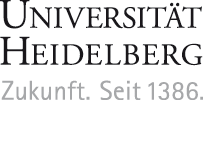Lautenschläger Research Prize 2007 for Prof. Dr. Matthias Hentze and Prof. Dr. Andreas Kulozik
Endowed with 250,000 euros — Pioneering approach in the framework of the Molecular Medicine Partnership Unit, a joint venture of the University of Heidelberg and the European Molecular Biology Laboratory (EMBL)
In 2007 the Lautenschläger Research Prize, endowed with 250,000 euros, goes to the medical scientists Professor Dr. Matthias Hentze and Professor Dr. Andreas Kulozik for their joint research work on disturbances to the processing and control of the transmission of genetic information within the cell, the so-called RNA metabolism, in frequent genetic diseases affecting haematopoiesis and blood coagulation.

| |
|
Professor Dr. Matthias Hentze
Foto: privat
|
This announcement comes from the Awarding Committee of the
Lautenschläger Research Prize, a body of twelve internationally
renowned scientists and scholars. In the substantiation of its decision
the Committee emphasises the pioneering nature of the approach and the
successful implementation of cooperation between basic research and
clinical application, as well as the close collaboration between
university and non-university research institutions in Heidelberg in
the framework of the Molecular Medicine Partnership Unit, a joint
venture between the University of Heidelberg and the European Molecular
Biology Laboratory (EMBL). The Prize will be presented on 28 September
in the Great Hall of the Old University, Heidelberg.
In their
pioneering joint research work the two Prize recipients have focussed
on a haematopoietic disturbance affecting millions of people all over
the world to indicate how errors in gene expression can be corrected in
the course of cellular quality control at the RNA level, thus
preventing the outbreak of the disease. In addition, the two scientists
have investigated one of the most frequent blood coagulation
deficiencies and identified for the first time an unexpected mechanism
behind RNA metabolism deficiency, describing its mode of impact at the
molecular level. This newly discovered mechanism brings about higher
efficiency in the processing of genetic information in the cell. It
causes an imbalance in the blood proteins promoting and inhibiting
blood coagulation that in its turn leads to a heightened predisposition
for thrombosis. The Prize money is to be employed in using
high-throughput technologies to identify molecular switches for these
important gene expression control mechanisms, thus indicating avenues
for systematic exploration in the ultimate design of novel therapeutic
strategies.

| |
|
Professor Dr. Andreas Kulozik
Foto: privat
|
The presentation ceremony will take place at 5 p.m. on 28 September 2007 in the Great Hall of the Old University, Heidelberg.
(Photos of Prof. Hentze and Prof. Kulozik are available from presse@rektorat.uni-heidelberg.de)
Please address any inquiries to
Dr. Jens Hemmelskamp
Research Department
University of Heidelberg
Seminarstr. 2
69117 Heidelberg
phone: 06221/542145, fax: 543599
jens.hemmelskamp@zuv.uni-heidelberg.de
Marianne Schork
marianne.schork@zuv.uni-heidelberg.de
Dr. Michael Schwarz
Public Information Officer
University of Heidelberg
michael.schwarz@rektorat.uni-heidelberg.de
Irene Thewalt
phone: 06221/542310, fax: 542317
presse@rektorat.uni-heidelberg.de


